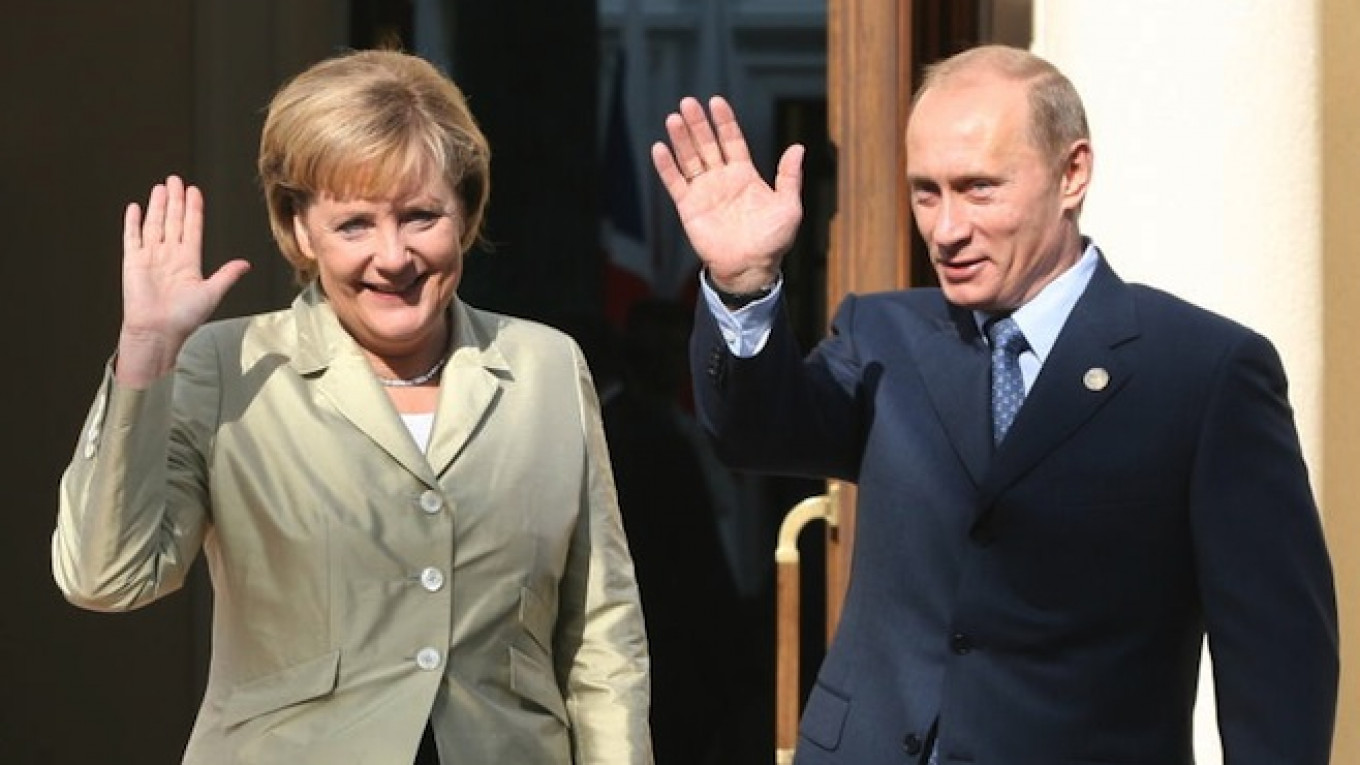A phone call between President Vladimir Putin and German Chancellor Angela Merkel seemed to result in a win-win situation as both leaders issued statements portraying the talks as a success.
A statement on the German Chancellor's website said Putin had promised "the partial withdrawal of Russian troops he ordered from the eastern border of Ukraine."
"On top of that the two discussed further possible steps to stabilize the situation in Ukraine and Transdnestr," Merkel's spokesman Steffen Seibert said in the statement.
The Kremlin, which emphasized that Monday's had been a Russian initiative, said Putin and Merkel had discussed how the West and Moscow could help "restore stability" in Ukraine.
Putin told Merkel that Ukraine must enact constitutional reforms to ensure that the interests of all its regions are respected, and called for measures to end what he called a "blockade" of Moldova's breakaway Transdnestr republic, his office said in a statement.
Putin and Merkel also discussed "opportunities for international support for the restoration of stability" in Ukraine, the Kremlin statement said. It gave no details, but Russia has indicated it wants Western states to press the Kiev government to grant broad autonomy to Ukraine's regions.
Western officials have expressed concern that Putin may have set his sights on the pro-Russian Transdnestr republic, on Ukraine's western border, following the annexation of Crimea.
Putin's comments appeared aimed at turning the tables, blaming others for tension over Transdnestr and saying it could not be ignored.
"The Russian leader spoke of the need to take effective measures aimed at removing the de facto external blockade of this region and at searching for a fair and comprehensive solution to the Transdnestr issue," the Kremlin statement said.
Transdnestr, with a population of half a million, has run its own affairs since 1992 after fighting a brief war against the Moldovan government over fears that it might join Romania after the collapse of the Soviet Union. Russia has a permanent garrison of peacekeepers there.
Earlier on Monday, Germany's conservative Finance Minister Wolfgang Schaeuble compared Russia's actions in Ukraine to Adolf Hitler's aggression in 1938 that led to the annexation of German-speaking regions of Czechoslovakia.
"We know all about that from history," Schaeuble told a group of 50 students. "Those are the methods that Hitler used to take over the Sudetenland," he said.
Merkel however was quick to distance herself from her colleague's comparison.
"I regard the case of the annexation of Crimea as a standalone case" she said at a news conference on Monday.
Schaeuble also said that it could not be ruled out that there would be a severe worsening of relations with Russia in the months ahead. He said that there are considerable fears about Russia in the Baltic nations as well as in Poland and Hungary.
"They're all crapping in their pants," he told the students.
Material from The Moscow Times has been included in this report.
A Message from The Moscow Times:
Dear readers,
We are facing unprecedented challenges. Russia's Prosecutor General's Office has designated The Moscow Times as an "undesirable" organization, criminalizing our work and putting our staff at risk of prosecution. This follows our earlier unjust labeling as a "foreign agent."
These actions are direct attempts to silence independent journalism in Russia. The authorities claim our work "discredits the decisions of the Russian leadership." We see things differently: we strive to provide accurate, unbiased reporting on Russia.
We, the journalists of The Moscow Times, refuse to be silenced. But to continue our work, we need your help.
Your support, no matter how small, makes a world of difference. If you can, please support us monthly starting from just $2. It's quick to set up, and every contribution makes a significant impact.
By supporting The Moscow Times, you're defending open, independent journalism in the face of repression. Thank you for standing with us.
Remind me later.






